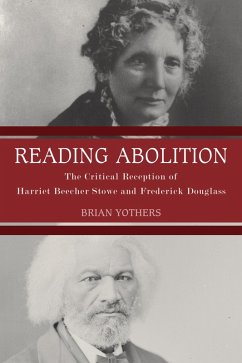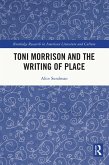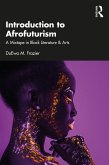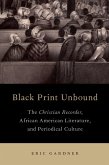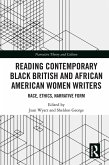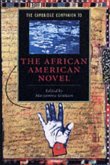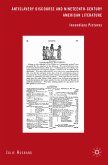A pathbreaking consideration of the intertwined critical responses to Harriet Beecher Stowe and Frederick Douglass, giants of abolitionist literature.
Harriet Beecher Stowe and Frederick Douglass represent a crucial strand in nineteenth-century American literature: the struggle for the abolition of slavery. Yet there has been no thoroughgoing discussion of the critical receptionof these two giants of abolitionist literature. Reading Abolition narrates and explores the parallels between Stowe's critical reception and Douglass's. The book begins with Stowe's Uncle Tom's Cabin, considering its initial celebration as a work of genius and conscience, its subsequent dismissal in the early twentieth century as anti-Southern and in the mid-twentieth century as racially stereotypical, and finally its recent recovery as a classic of women's, religious, and political fiction. It also considers the reception of Stowe's other, less well-known novels, non-fictional works, and poetry, and how engaging the full Stowe canon has changed the shape of Stowe studies. The second half of the study deals with the reception of Douglass both as a writer of three autobiographies that helped to define the contours of African American autobiography for later writers and critics and as an extraordinarily eloquent and influential orator and journalist. Reading Abolition shows that Stowe's and Douglass's critical destinies have long been intertwined, with questions about race, gender, nationalism, religion, and thenature of literary and rhetorical genius playing crucial roles in critical considerations of both figures.
Brian Yothers is Frances Spatz Leighton Endowed Distinguished Professor and Associate Chair of the Department ofEnglish at the University of Texas at El Paso.
Harriet Beecher Stowe and Frederick Douglass represent a crucial strand in nineteenth-century American literature: the struggle for the abolition of slavery. Yet there has been no thoroughgoing discussion of the critical receptionof these two giants of abolitionist literature. Reading Abolition narrates and explores the parallels between Stowe's critical reception and Douglass's. The book begins with Stowe's Uncle Tom's Cabin, considering its initial celebration as a work of genius and conscience, its subsequent dismissal in the early twentieth century as anti-Southern and in the mid-twentieth century as racially stereotypical, and finally its recent recovery as a classic of women's, religious, and political fiction. It also considers the reception of Stowe's other, less well-known novels, non-fictional works, and poetry, and how engaging the full Stowe canon has changed the shape of Stowe studies. The second half of the study deals with the reception of Douglass both as a writer of three autobiographies that helped to define the contours of African American autobiography for later writers and critics and as an extraordinarily eloquent and influential orator and journalist. Reading Abolition shows that Stowe's and Douglass's critical destinies have long been intertwined, with questions about race, gender, nationalism, religion, and thenature of literary and rhetorical genius playing crucial roles in critical considerations of both figures.
Brian Yothers is Frances Spatz Leighton Endowed Distinguished Professor and Associate Chair of the Department ofEnglish at the University of Texas at El Paso.
Dieser Download kann aus rechtlichen Gründen nur mit Rechnungsadresse in A, D ausgeliefert werden.

